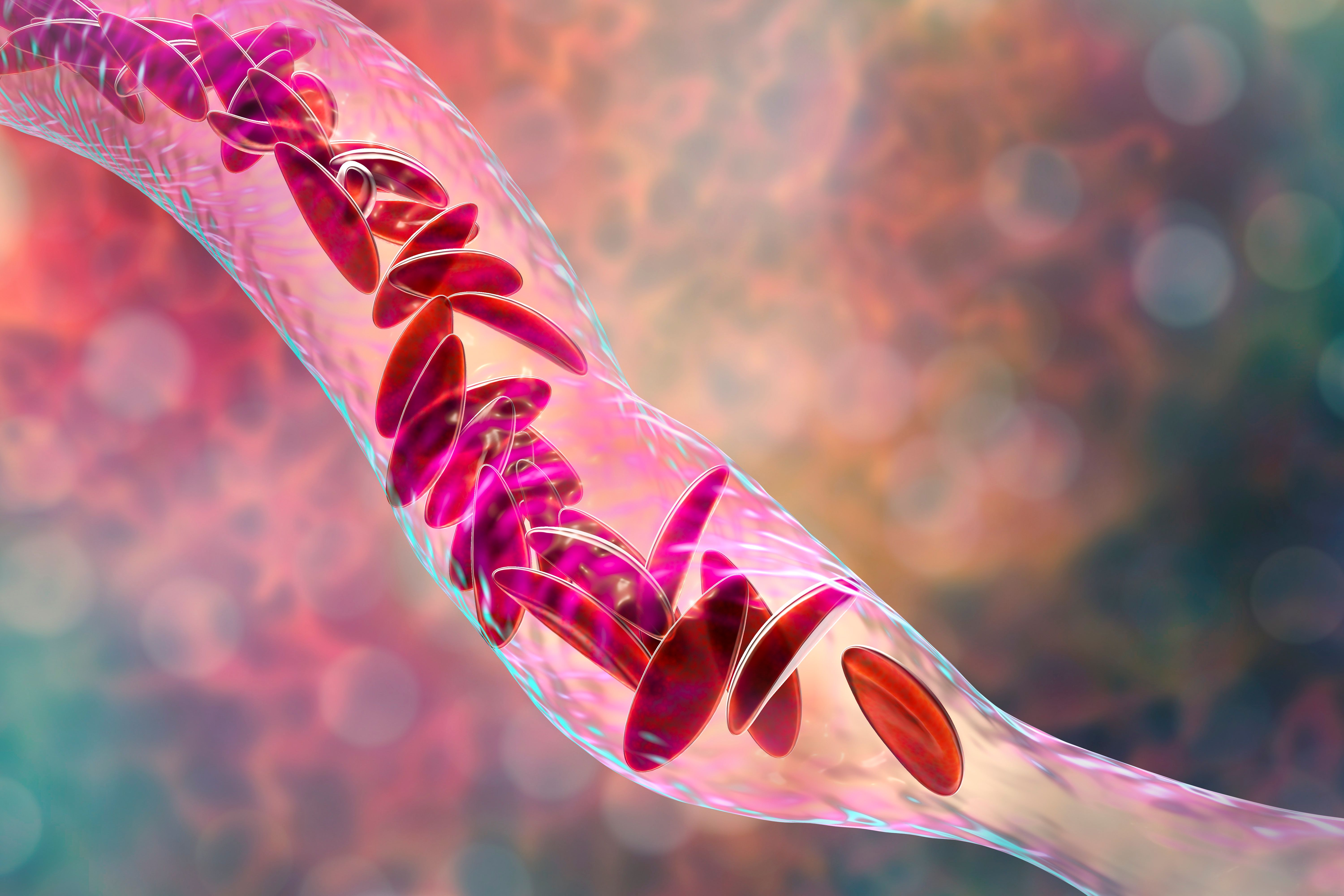News
Article
Study: Hydroxyurea Reduces Severe, Invasive Infections by 60% in Children with Sickle Cell Disease
Author(s):
The findings suggest that further research on additional intervention methods and expanding access to hydroxyurea in Africa could benefit young patients with sickle cell disease.
Recent research demonstrates that hydroxyurea can significantly reduce infections in children with sickle cell anemia. The findings further support previous evidence that the efficacy of hydroxyurea can reduce the number of deaths in Africa among children with sickle cell anemia.
Image credit: Dr_Microbe | stock.adobe.com

Sickle cell anemia is a genetic blood disorder which alters the red blood cells’ structure and affects oxygen distribution throughout the body, which can increase the patient’s susceptibility to life-threatening conditions and infections. Although hydroxyurea received FDA approval in 2017 as a sickle cell disease treatment for children, its accessibility and acceptance in Africa is significantly limited. Because hydroxyurea is beginning to be more recognized in African countries for its efficacy in treating sickle cell-related conditions, the study authors examined the gap between the treatment and its effect on infections.
“Our investigation provides powerful justifications for hydroxyurea’s use in children with sickle cell anemia in Africa,” said co-lead study investigator Chandy John, MD, MS, Ryan White professor of pediatrics at the Indiana University School of Medicine, in a press release. “Given the high rates of infection in this region, we hope our evidence will encourage ministries of health to continue supporting and expanding access to hydroxyurea for young patients who can greatly benefit from the treatment.”
The findings reveal that children who received treatment with hydroxyurea experienced a 60% reduction in severe or invasive infections such as malaria, bacteremia, respiratory tract infections, and gastroenteritis. A total of 117 children with sickle cell anemia were included in the study. Of the 9 deaths that occurred during the trial, 8 were children who did not receive treatment with hydroxyurea, and 1 death occurred 4 days after the initiation of hydroxyurea.
In addition, 5 of the deaths were a result of infectious causes. According to the authors, the relatively high death rate in the trial is an indication of further research to evaluated additional interventions that can decrease mortality in children with sickle cell disease.
“Infections commonly precede other complications related to sickle cell anemia and often result in hospitalizations that can lead to death,” said site principal investigator Ruth Namazzi, MB ChB, MMed, first author and lecturer in the department of pediatrics and child health at Makerere University in Uganda. “We believe incorporating hydroxyurea treatment as the standard of care for sickle cell anemia across Africa will not only reduce infections but will more importantly save countless lives.”
Reference
Indiana University. Hydroxyurea significantly reduces infections in children with sickle cell anemia. News release. January 29, 2024. Accessed January 30, 2024. https://www.eurekalert.org/news-releases/1032714





